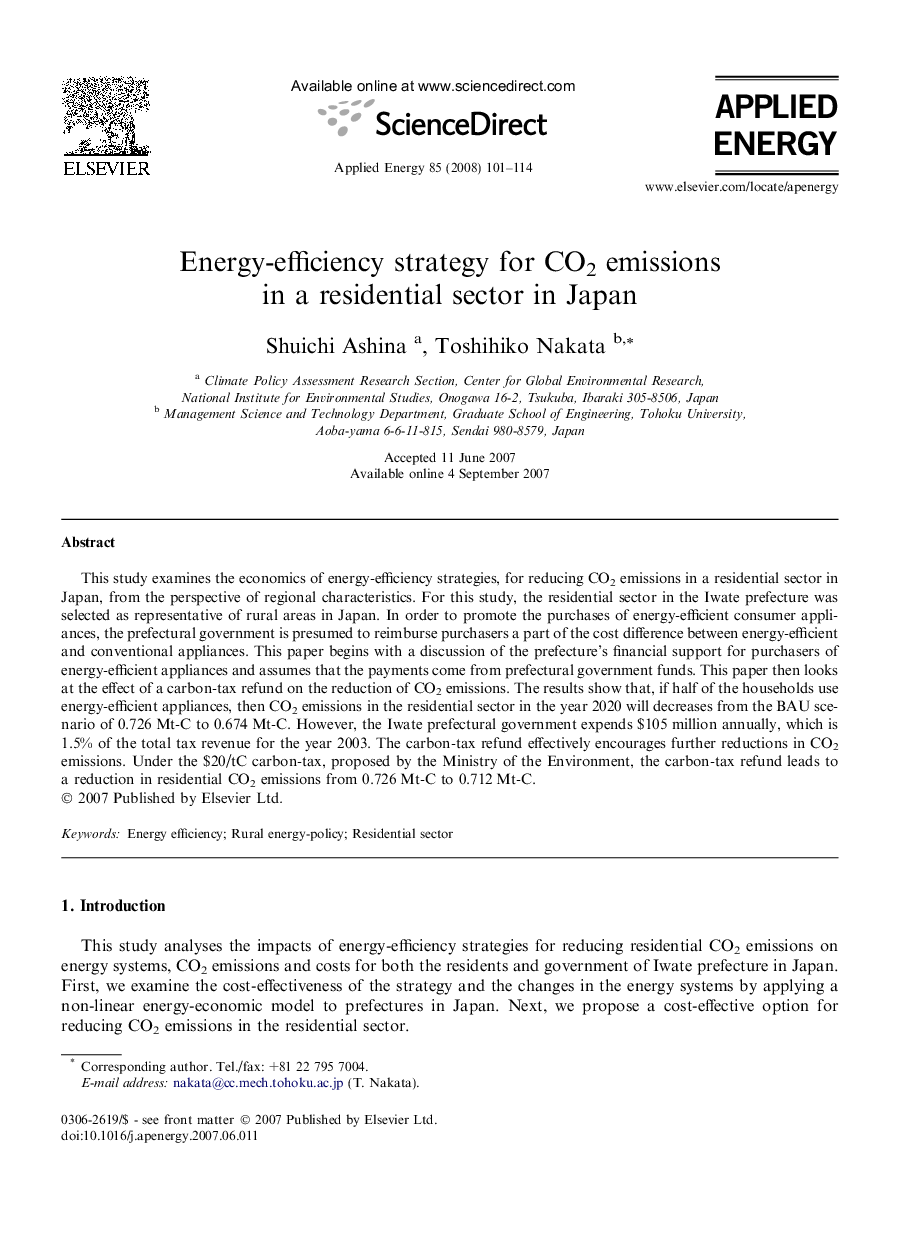| Article ID | Journal | Published Year | Pages | File Type |
|---|---|---|---|---|
| 245278 | Applied Energy | 2008 | 14 Pages |
This study examines the economics of energy-efficiency strategies, for reducing CO2 emissions in a residential sector in Japan, from the perspective of regional characteristics. For this study, the residential sector in the Iwate prefecture was selected as representative of rural areas in Japan. In order to promote the purchases of energy-efficient consumer appliances, the prefectural government is presumed to reimburse purchasers a part of the cost difference between energy-efficient and conventional appliances. This paper begins with a discussion of the prefecture’s financial support for purchasers of energy-efficient appliances and assumes that the payments come from prefectural government funds. This paper then looks at the effect of a carbon-tax refund on the reduction of CO2 emissions. The results show that, if half of the households use energy-efficient appliances, then CO2 emissions in the residential sector in the year 2020 will decreases from the BAU scenario of 0.726 Mt-C to 0.674 Mt-C. However, the Iwate prefectural government expends $105 million annually, which is 1.5% of the total tax revenue for the year 2003. The carbon-tax refund effectively encourages further reductions in CO2 emissions. Under the $20/tC carbon-tax, proposed by the Ministry of the Environment, the carbon-tax refund leads to a reduction in residential CO2 emissions from 0.726 Mt-C to 0.712 Mt-C.
